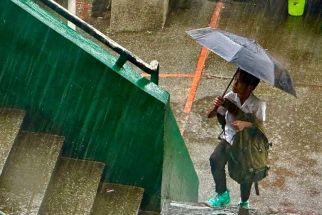Pakistan tightens security after mosque suicide blast
ISLAMABAD (AFP) - Pakistan boosted security yesterday fearing further attacks a day after a suicide bombing during protests at Islamabad's pro-Taliban Red Mosque killed 14 people.
Authorities were also investigating how the attacker was able to strike at a crowded market in the heart of the capital, the 13th suicide blast to hit the country since a bloody army raid on the mosque on July 10.
The bomber targeted officers policing Islamic students who had occupied the controversial Red Mosque to demand that their jailed former cleric should lead prayers after its chaotic reopening on Friday.
"Security has been tightened and a joint investigation team has been assembled," Interior Ministry spokesman Brigadier Javed Cheema told AFP.
Cheema added that the remains of the suicide bomber had been found and were being DNA-tested to establish his identity.
He said the mosque had been closed indefinitely, adding the suicide attack was "in all probability linked to the Red Mosque issue."
Islamabad police chief Iftikhar Chaudhry said 56 people had been arrested over the mosque disturbance and were being interrogated, but no one had yet claimed responsibility for the attack.
Senior Islamabad police officer Shahid Nadeem Baluch said police had set up extra pickets at all entry and exit points of the capital.
Scanners and video cameras were also being installed at markets and other public places, Baluch told AFP. He said no arrest had been made so far in the ongoing investigation.
"There are indications that the bomber may have tried to carry out a suicide attack at the Red Mosque but because of the tight security he was prevented," a senior security official told AFP on condition of anonymity.
The attacker "found an opportunity where a police unit was assembled and blew himself up."
The official added that there was a likelihood of more suicide attacks to come.
A senior militant source said the attack showed that Islamic rebels had "ready-made suicide bombers who can be launched at short notice."
The violence has cranked up pressure on President Pervez Musharraf, who is fending off US threats to launch unilateral military strikes in Pakistan's tribal areas bordering Afghanistan.
Musharraf, who launched a crackdown on extremism after 9/11, won plaudits for tackling militants holed up in the mosque, but the loss of more than 100 lives in the operation to clear it sparked the current militant backlash.
Meanwhile, a former Pakistani government minister who resigned after the mosque's leaders issued a fatwa against her for posing in an "obscene manner" with French paraglider pilots, vowed Saturday to fight back.
"My mission in life now is to face and fight extremism of any kind," the former minister of tourism Nilofar Bakhtiar told AFP in a telephone interview.
Bakhtiar said she planned to organise an international conference on extremism in Pakistan in November.
"I want people to knock down extremism, to bring religions together, because we need to live as (a) global village," she added.
Following heavy fighting between government troops and militants at the mosque earlier this month, the badly-damaged building was repaired and the adjoining girls' religious school demolished.
The formerly red building was repainted in pale yellow and bullet holes and scorch marks from explosions were patched up before it was formally reopened for Friday's traditional prayers.
However, hundreds of radical students chased out a government-picked elder who was meant to lead the prayers and demanded the return of the mosque's chief cleric, Abdul Aziz, who is now in jail on terror charges.
What threatened to become a dangerous standoff ended suddenly with the sound of the huge blast at the Aabpara market just a few hundred metres (yards) away.
The government originally cracked down on the mosque after it led a Taliban-style vigilante campaign for Sharia law that climaxed with the abduction in Islamabad of seven citizens from China.
The government has denied reports on Friday that Musharraf held a secret meeting with exiled premier Benazir Bhutto in Abu Dhabi in a bid to arrange a power-sharing pact to steady his position.
- Latest
- Trending































